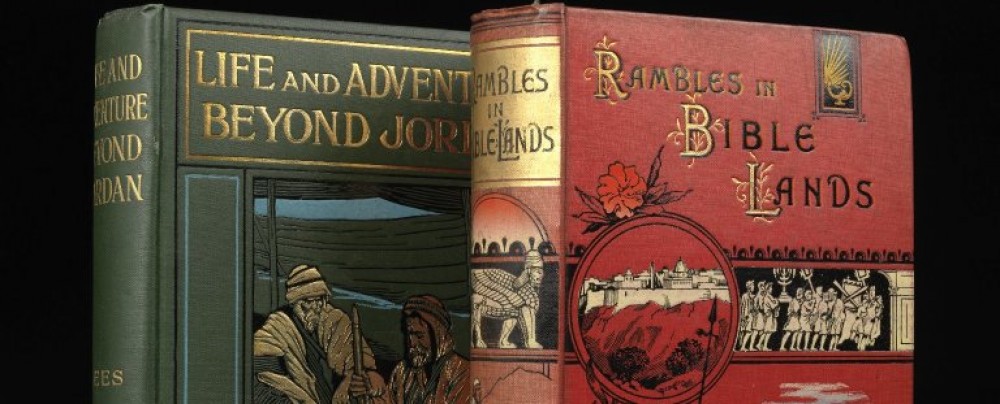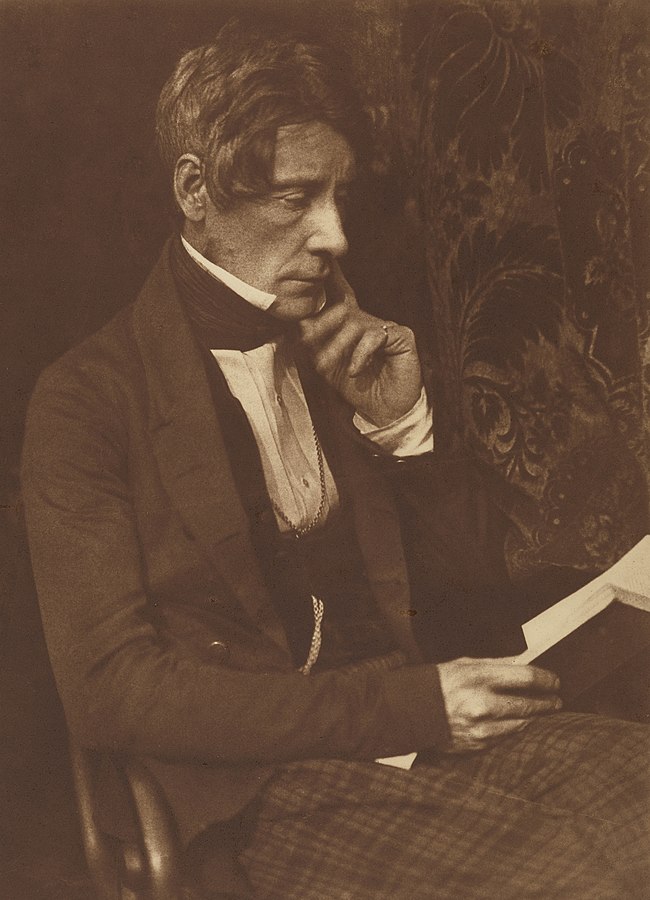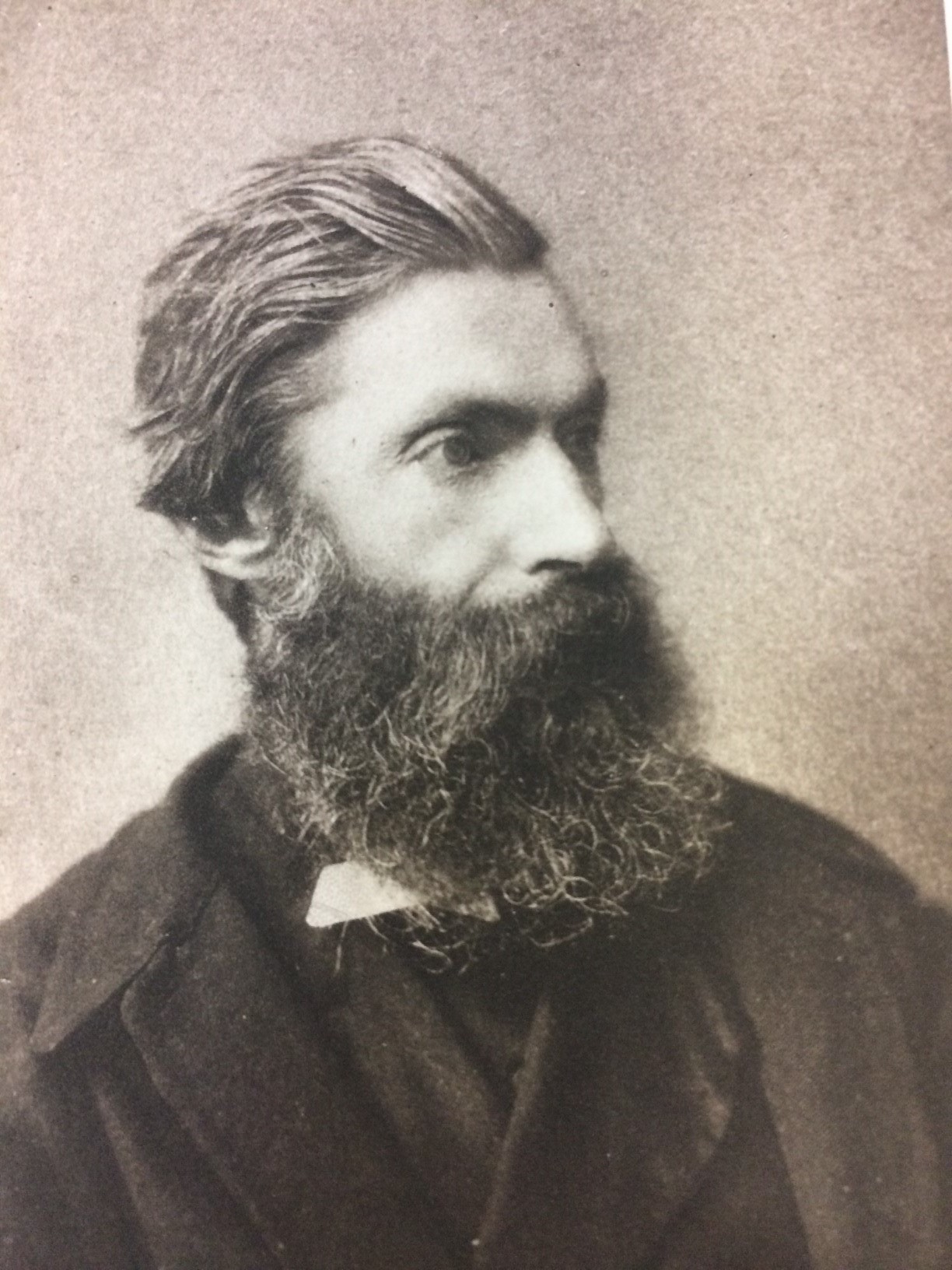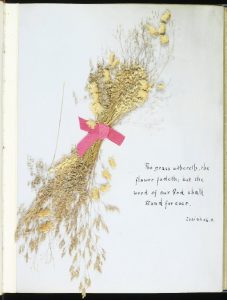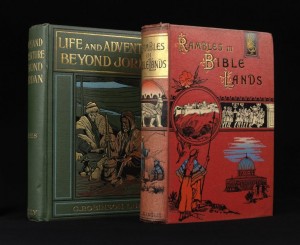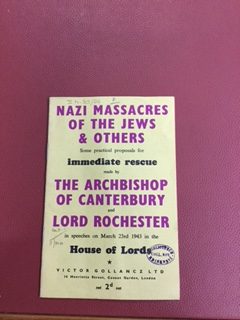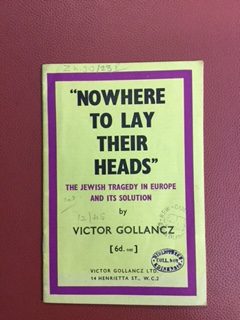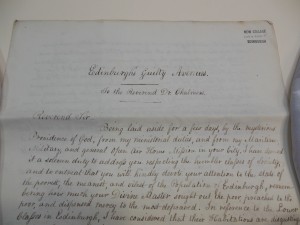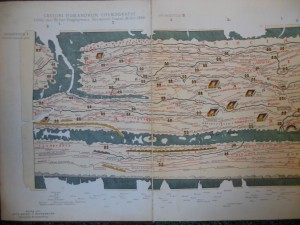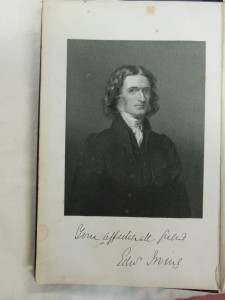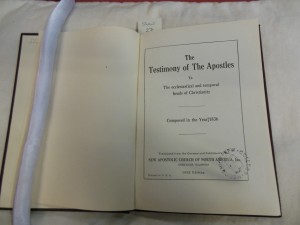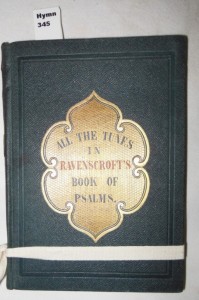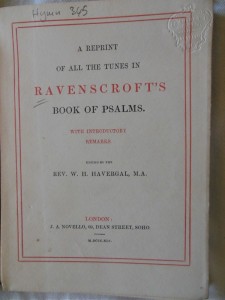A guest post for Black History Month by Eleanor Rideout, IS Helpdesk Assistant
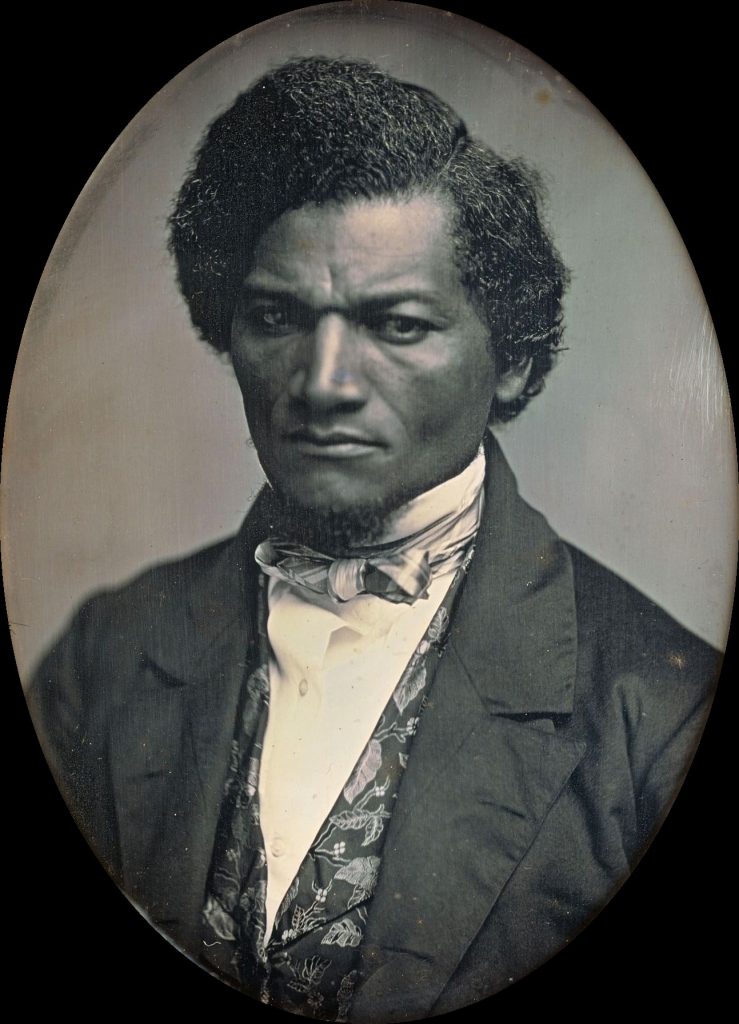
Frederick Douglass by Samuel J Miller, 1847-52. Wikimedia Commons
Noted African-American anti-slavery campaigner Frederick Douglass had embarked on a tour of Ireland and Great Britain, reaching Scotland in 1846. He was speaking against the evils of slavery generally, but a decision made by the Free Church of Scotland became the focus of his work here.
The separation of the Free Church from the Church of Scotland meant that funding needed to be found. One source was fellow Presbyterian Churches, including those in the American South. Money was accepted from slaveholders, which did not go unnoticed by abolitionists.
Douglass’s reputation as a powerful speaker is confirmed by two anonymous letters from a woman living in Dundee, addressed to Free Church leader Thomas Chalmers, which are held at New College Library, Edinburgh.
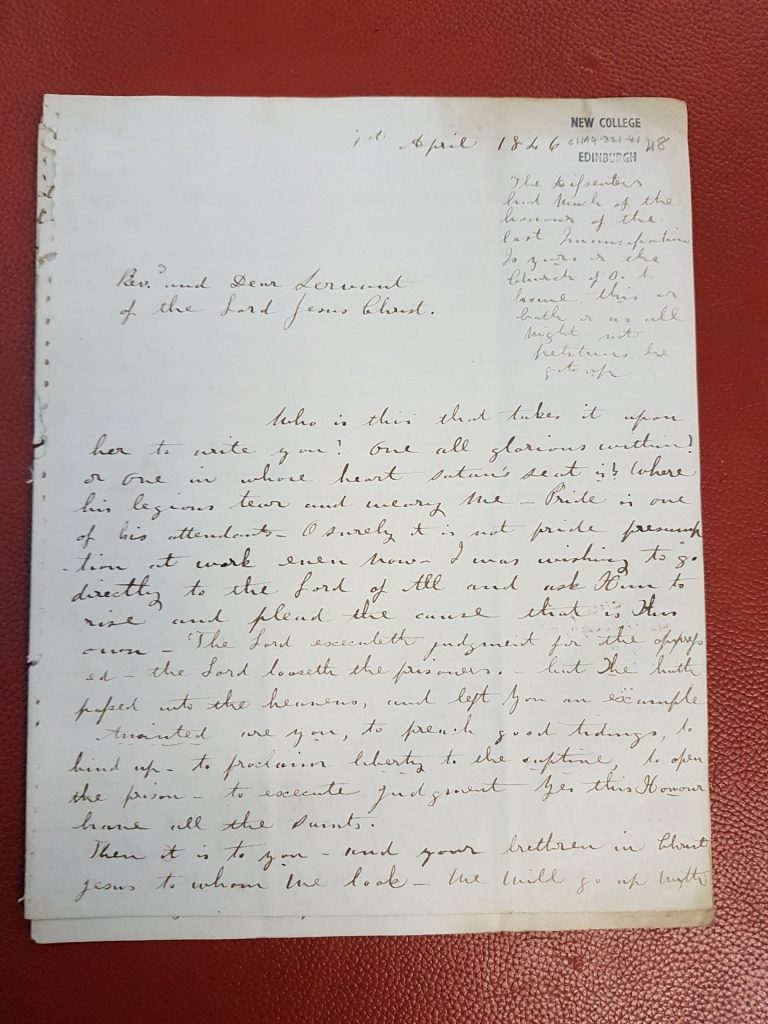
Anonymous to Thomas Chalmers, 1 April 1846. MS CHA 4.321.41-42.
The writer’s style is impassioned, swerving between criticism of slaveholders, concern for her own soul, and description of events recently witnessed:
“They would not give the churches and few comparatively speaking gave their ears. Because it was said that the strangers witnessed too hard things against your Church. If the Men tell the Truth you should not be angry.”
“Dear Dr C. What are you going to do in the matter of taking money from the slaveholders in the America about which I heard a great deal last week & meetings – two of which I attended – as I used to be very much interested in the Slave question…”
“Part of my ordinary as Rev. T Boston would say, or rather my extraordinary for in thought word and deed I am of late a Backslidder [Backslider], ah for Grace to grow in grace. You see how I wander –It is the Poor Captive slave I wish now to speak for. I would you would be a tongue to such dumb ones. Then soon soon the Lord will look down and deliver. For to them belongeth Power, Dominion, Strength, Mercy. And then will their tongues become glories to praise, to bless to laud the King of Glory – and they too shall not forget you –as we all have too long forgotten them. Neglect is infliction.
O how much I know of my Masters will yet do it not I wish whiles the Lord would set me and take me.”
She also uses rhetorical flourish herself to try and persuade Chalmers:
“It was sins of ignorance I was reading today 4 Lev. I see there the Lord will not let such pass. It was for such the blessed Jesus prayed when on the cross Father forgive them. Now I believe firmly you did not see at the time that taking money from slaveholders was the price of blood – verily your Church hath been guilty. Do not think I am glad to set aught against you because you have far outstript us in the way of voluntary giving. No I was glad and I myself made crape [crêpe] the year of the disruption that I might give what I had for ribbon, to your Free Church, Free Church what have you to do with the House of Bondage. Hath the Truth made you Free – then Freely give.”
It is interesting to be able to read her words along with the published transcripts of the speeches made by Frederick Douglass, also held at New College Library :
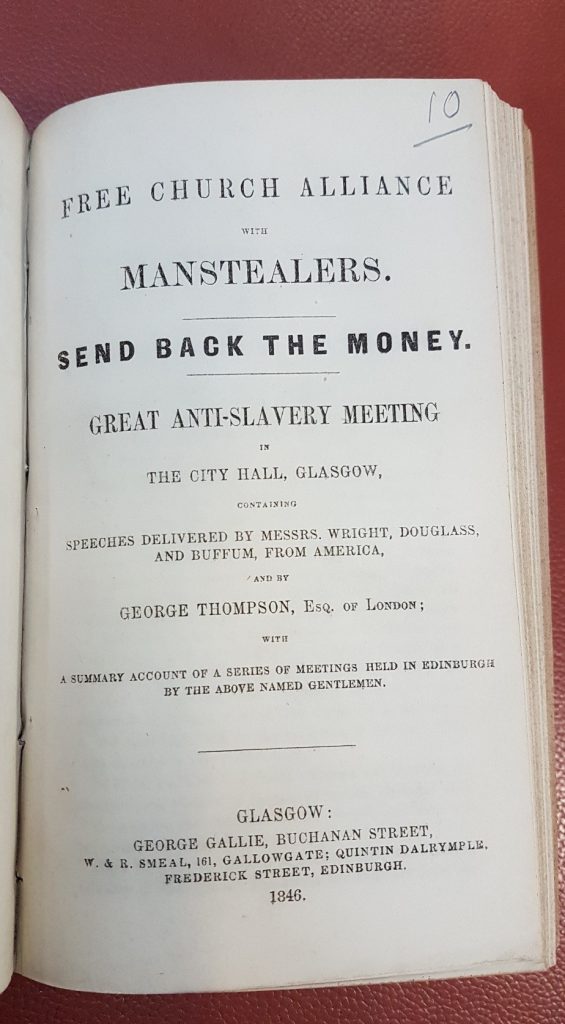
Free Church Alliance with manstealers: send back the money, great anti-slavery meeting in the City Hall, Glasgow. Glasgow: George Gallie, 1846. M.d.9/10.
“All was going on gloriously – triumphantly; the moral and religious sentiment of the country was becoming concentrated against slavery, slaveholders, and the abetters of slaveholders, when, at this period, the Free Church of Scotland sent a deputation to the United States with a doctrine diametrically opposed to the abolitionists, taking up the ground that, instead of no fellowship, they should fellowship the slaveholders. According to them the slaveholding system is a sin, but not the slaveholder a sinner.”
“The deputation had an excellent opportunity of aiming an effectual blow at slavery, but they turned a deaf ear and refused to listen to the friends of freedom. They turned a deaf ear to the groans of the oppressed slave – they neglected the entreaties of his friends- and they went into the slave states, not for the purpose of imparting knowledge to the slave, but to go and strike hands with the slaveholders, in order to get money to build Free Churches and pay Free Church ministers in Scotland. [Cries of “shame” and applause.]”
“I verily believe, that, had I been at the South, and had I been a slave, as I have been a slave – and I am a slave still by the laws of the United States- had I been there, and that deputation had come into my neighbourhood, and my master had sold me on the auction block, and given the produce of my body and soul to them, they would have pocketed it and brought it to Scotland to build their churches and pay their ministers.”
While the Free Church money was not returned the strong impression made on listeners by Frederick Douglass’s words can be seen clearly in these letters. With the 200th anniversary of his birth in 2018 his great contribution to the abolitionist cause is likely to be celebrated more and more.
Eleanor Rideout
With thanks to Alasdair Pettinger whose article ‘The Bloody Gold’ drew attention to this letter: http://www.bulldozia.com/projects/index.php?id=616

